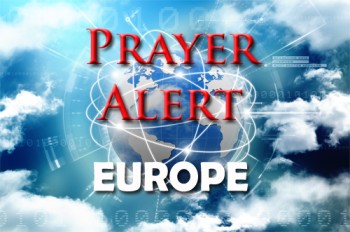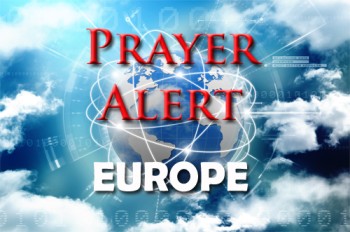Displaying items by tag: Europe
Moldova: severe energy crisis
Moldova has made history by buying gas from a source that was not Russia's Gazprom. The one million cubic metres came from Poland's PGNiG. Moldova will need much larger volumes if Russia cuts supplies, as it has threatened to do if they don’t agree to increased costs in a new contract. In the absence of a new deal Russia reduced supplies, prompting Moldova to declare a thirty-day state of emergency. Gazprom accused Moldova of ‘provoking a crisis’ and demanded repayment of a $709m (£514m) debt, which Moldova disputes. Officials say they would like to sign a new contract with Gazprom, but only if the terms are favourable. Negotiations continue. Moldova said PGNiG’s shipment was to test the ability of imported gas from alternative sources, and PGNiG was one of seven offers they had received. Critics accuse the Kremlin of hiking gas prices to punish Moldova for electing a pro-European president, Maia Sandu.
Italy: flash flooding and hurricane
An official In Catania, Sicily, called the situation ‘very critical’. Streets are completely flooded, and a red alert - the highest level warning - has been issued for flooding in northeast Sicily and the southwest region of Calabria. A depression on the Mediterranean is causing disturbed weather conditions in southern Italy. Over two feet of rain fell in half a day - never seen before. While storms continue, a Medicane (rare Mediterranean hurricane producing 5 metre waves) meanders south, with 150mm of rain predicted for Friday with localized areas receiving higher amounts. Schools and businesses are closed, and people are advised to stay indoors and banned from areas prone to landslides. Fire and rescue have had hundreds of callouts in one day. See alsowww.bbc.co.uk/news/world-europe-59048809
EU strategy on combatting anti-Semitism
Last week you prayed for an end to anti-Semitism in European football matches. This week the European Commission has presented its first ever comprehensive strategy on combatting antisemitism and fostering Jewish life. The commission said, ‘This is a strategy document which we as European citizens can take great pride in. Combatting antisemitism in the EU is a shared responsibility requiring joint efforts and action at every level.’ Pray that EU institutions and agencies, member states, international organisations, Jewish organisations, and human rights organisations will play their part in achieving a society free of anti-Semitism.
Channel smugglers are outwitting France and UK
People-smuggling networks in migrant camps are slick and organised. It took little more than a week for Hamid to find a people-smuggler in Calais. Within a couple of days, he was hiding near the beach with 75 others, waiting to cross the Channel in a small inflatable boat. Over 18,000 people so far this year have crossed the twenty miles of sea between Britain and France in small boats. Despite significant investment on both sides of the Channel, that's more than double the number last year. France's northern coastline is covered with dunes, foliage and hundreds of old WW2 bunkers where migrants can hide. High-security fencing and surveillance cameras now successfully protect the ports and Eurotunnel terminal, but surveillance is difficult among forested dunes. Hamid’s crossing cost £2,500, on top of the £7,275 he had paid to leave Afghanistan and cross Europe to France.
Canary Islands: a month of volcanic activity
Unfortunately, there has been no change in activity in the Canary Islands volcano; the eruption continues to feed the growing lava flow field at high effusion rates. Its northern margins continue to be active and advancing south into areas already buried under lava flows. Consequently the government has had to evacuate another adjacent area.
Canary Islands volcano danger growing
Lava from the Cumbre Vieja volcano, which has been erupting for four weeks, has destroyed even more homes and buildings. The two new vents that opened last week have partially collapsed, causing lava to flow in multiple directions. The local airport was closed again for two days and 800 more homes were evacuated as rapid flows of molten lava moved towards them, bursting homes into flames. There were 64 more seismic movements recorded, the strongest measuring 4.1. There are no signs of eruptions and earthquakes stopping soon. Over 1,100 buildings and 600 hectares of land had been destroyed by 13 October, and the next day the lava flows expanded again with even more evacuations ordered in three more areas.
Germany: anti-Semitism at football match
UEFA are investigating Union Berlin after shocking acts of anti-Semitism took place during a match with Israel’s Maccabi Haifa football team in a Nazi-built stadium. Before the game Maccabi players laid a wreath at Berlin’s Holocaust memorial. During the game a Jewish group of fans were subjected to anti-Semitic abuse and assaulted in the mixed area of the stands where fans from both teams sit together. They were threatened, pelted with beer, insulted, and one fan tried to set fire to an Israeli flag. UEFA said that an ‘Ethics and Disciplinary Inspector’ has been appointed to conduct a disciplinary investigation regarding discriminatory incidents. Police are also investigating the antisemitic abuse, which included other incidents around the stadium. Club president Dirk Zingler said, ‘This latest display of anti-Semitism, in a place so iconic for the Nazis, shows there is still work to be done to stamp it out in German society.’
Canary Islands volcano ‘much more aggressive’
The Canary Islands volcano has blown open two more fissures, and intense activity has worsened, three weeks after the original eruption. The prompt evacuation of more than 6,000 people since the 19 September eruption helped prevent casualties. By 3 October the lava had destroyed or partially destroyed 1,000+ buildings, including homes and farming infrastructure. By 7 October it had destroyed 21 miles of roads and entombed large areas of land, with no indication of lessening.
Germany: changes in leadership
On 26 September voters elected the Bundestag's parliamentary seats. The dominant political parties - SPD, CDU and CSU - finished only ten seats apart. Angela Merkel’s departure has opened up a large void. Many older MPs have been replaced by people in their thirties or even twenties. This rejuvenation will bring many openings for renewal and innovation in the current technological and global transformation, but will also pose potential risks that need prayer. Will Germany manage to keep its leadership in Europe, or will France supplant it? What can the EU expect from the new Chancellor and coalition on climate change, trade, and technology? How do the elected candidates see Europe’s place in the world? What will the results mean for Germany’s relationships with France, the USA, Russia, or China?
France: Catholic clergy sexually abused 216,000 minors
A report has shown that the Church prioritised protecting the institution over victims who were urged to stay silent. The number of abused minors rises to an estimated 330,000 when including victims of people with other links to the Church, like Catholic schools and youth programmes. Between 2,900 and 3,200 abusers worked in the Catholic Church between 1950 and 2020, out of a total of 115,000 priests and other clerics. ‘The Church is the place where the prevalence of sexual violence is at its highest, other than in family and friend circles’, said the report, which found that children were also more likely to be abused within Church settings than in state-run schools or summer camps. This report follows similar ones from other countries.









